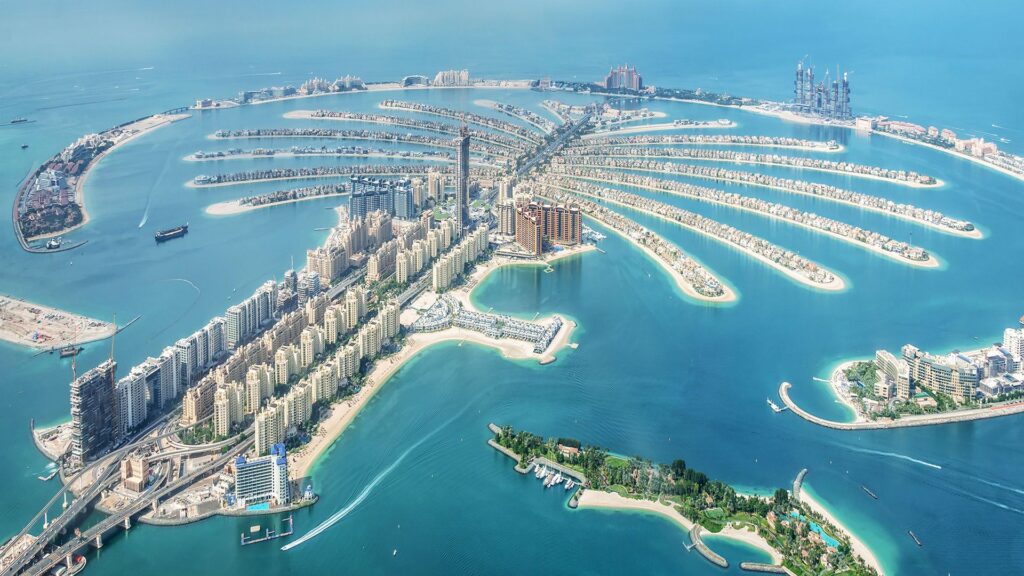Introduction
If you plan to launch an IT company in the UAE, one of the first questions you’ll face is, “Which free zone should I choose?” The UAE has built its reputation as a regional technology hub, attracting global businesses and startups from across the world. With a strong digital infrastructure, zero personal income tax, and a business-friendly ecosystem, it’s no surprise that tech entrepreneurs continue to relocate to Dubai and other Emirates to start their ventures.
However, with more than forty free zones spread across the country, each offering its own mix of benefits, choosing the right one can be confusing. Every free zone is different in its focus, costs, facilities, and rules. Some cater specifically to IT and digital businesses, while others serve a wider range of industries.
This guide will help you understand what makes each free zone unique, the key factors to consider before deciding, and a detailed overview of the best free zones in 2025 for starting an IT company in the UAE.
Understanding What a Free Zone Is
A free zone is a special economic area in the UAE that allows foreign investors to own their business 100 percent, without the need for a local Emirati sponsor. Free zones are designed to encourage foreign investment, innovation, and economic diversification.
They typically offer several advantages that appeal to IT companies:
- Full ownership without a UAE national partner
- Zero personal income tax
- 0% corporate tax for qualifying businesses
- Repatriation of profits and capital without restrictions
- Fast company registration and licensing
- Simplified visa and immigration procedures
- Access to modern business facilities
These zones are strategically developed to attract certain industries. For instance, Dubai Internet City focuses on technology and innovation, while Dubai Media City targets content and digital marketing firms. Understanding this industry focus is the first step in making a smart choice.

Why the UAE Is Ideal for IT Companies
Before choosing a free zone, it’s worth considering why so many IT and technology entrepreneurs choose the UAE as their business base.
- Strategic Global Location
The UAE connects the East and the West, providing easy access to markets in Asia, Africa, and Europe. This makes it a perfect base for global tech businesses. - Government Support for Innovation
The UAE government actively supports tech startups through initiatives like the Dubai Smart City project, the Artificial Intelligence Strategy, and various innovation grants. - Tax-Friendly Environment
With zero income tax and highly competitive corporate tax structures, the UAE remains one of the most business-friendly countries for foreign investors. - World-Class Infrastructure
The country offers excellent internet connectivity, reliable utilities, and well-equipped business parks designed for modern technology firms. - Diverse and Skilled Workforce
The UAE’s talent pool includes professionals from across the world, making it easier for IT businesses to hire skilled programmers, designers, and digital consultants.
Key Factors to Consider Before Choosing a Free Zone
Starting an IT company is not only about the license cost or location. You must align your choice with your business goals. Here are key factors to guide your decision.
1. Nature of Business Activities
Check whether your desired IT activities are allowed under the free zone’s approved business list. Activities such as software development, web design, AI research, cloud solutions, and IT consultancy are commonly accepted. However, some free zones may require specific permissions for activities like data hosting or blockchain-related services.
2. Setup and Renewal Costs
The cost of setting up a company varies significantly across free zones. Basic packages can start from around AED 12,000 per year for small startups with limited visas, while larger setups with offices and multiple visas can exceed AED 40,000 annually. Always factor in license renewal fees, visa charges, and office rental costs when planning your budget.
3. Office Space Options
Some free zones allow flexible workspaces such as hot desks or shared offices, while others require a dedicated office. For an IT business, the flexibility to work remotely or from a co-working space may be more suitable during the initial phase.
4. Visa Quota and Hiring Needs
Each license comes with a visa quota based on the office space. A flexi-desk might give you 1–3 visas, while a full office could allow more. If you plan to expand your team, make sure the free zone can accommodate your staffing plans.
5. Reputation and Ecosystem
Being in a reputed free zone can enhance your credibility with clients. Zones like Dubai Internet City and Dubai Silicon Oasis are recognized across the tech world. The networking potential in these areas can also be a major advantage.
6. Location and Accessibility
If your clients or team members are based in Dubai or Abu Dhabi, proximity to those areas will make meetings and collaboration easier. For startups serving international clients, airport connectivity might also be an important consideration.

Top Free Zones for IT Companies in the UAE (2025)
Let’s explore the best options available today for launching an IT company. Each free zone listed below offers specific advantages suited for different business sizes and budgets.
1. Dubai Internet City (DIC)
Dubai Internet City is the most established and prestigious technology hub in the region. It is home to global tech giants such as Microsoft, Google, IBM, and Oracle. For any IT business looking to position itself among the industry leaders, DIC is a strong choice.
Key Advantages:
- Designed exclusively for IT, digital, and communication industries
- Premium offices and coworking spaces with excellent connectivity
- A strong business network of global and regional tech companies
- Regular events and conferences like GITEX that help in networking and exposure
Ideal For:
Established IT companies, SaaS businesses, app developers, and IT consultancies looking for a high-end location and credibility.
Approximate Cost:
AED 25,000 to AED 40,000 per year depending on office size and license type.
Pros:
Prestige, excellent infrastructure, high client visibility.
Cons:
Higher cost, mandatory physical office space.
2. Dubai Silicon Oasis (DSO)
Dubai Silicon Oasis offers a perfect mix of affordability, infrastructure, and innovation. It is one of the few government-owned free zones and has evolved into a thriving tech community with startups, research centers, and global firms.
Key Advantages:
- Tech-focused ecosystem designed for IT and engineering companies
- Affordable licensing packages compared to Dubai Internet City
- Offers coworking and private office options
- Easy access to Dubai International Airport and central areas
Ideal For:
Tech startups, hardware manufacturers, IT service firms, and research-based companies.
Approximate Cost:
AED 15,000 to AED 25,000 per year.
Pros:
Affordable pricing, government-backed innovation programs, strong tech culture.
Cons:
Slightly away from central business districts.

3. Dubai Multi Commodities Centre (DMCC)
While DMCC originally began as a trade-focused free zone, it has diversified and now supports a wide range of sectors including IT, blockchain, and fintech. It’s located in Jumeirah Lakes Towers, offering a lively business environment and one of the best reputations globally.
Key Advantages:
- Voted as one of the world’s top free zones for several years
- Offers flexibility in office sizes, from virtual desks to full towers
- Home to a growing blockchain and Web3 community
- Access to world-class infrastructure and professional services
Ideal For:
Tech consulting, fintech startups, cybersecurity companies, and digital trading platforms.
Approximate Cost:
AED 20,000 to AED 30,000 per year.
Pros:
Prestige, flexibility, and excellent connectivity.
Cons:
Paperwork can be more detailed for new applicants.
4. Dubai Technology Entrepreneur Campus (Dtec)
Dtec is part of Dubai Silicon Oasis but operates as a startup-focused ecosystem. It is designed specifically to help entrepreneurs and tech founders get started quickly and affordably.
Key Advantages:
- Flexible coworking spaces and incubation programs
- Access to funding, mentorship, and networking events
- Suitable for freelancers and small teams
- Fast company setup and license issuance
Ideal For:
Early-stage IT startups, app developers, freelancers, and tech consultants.
Approximate Cost:
AED 10,000 to AED 18,000 per year.
Pros:
Low cost, startup support, community-driven environment.
Cons:
Limited scalability if you plan to expand rapidly.
5. Sharjah Research Technology and Innovation Park (SRTIP)
Located near the University City of Sharjah, SRTIP focuses on research, innovation, and sustainable technology. It is an excellent option for tech companies involved in R&D, AI, or education-related technologies.
Key Advantages:
- Research-driven ecosystem
- Affordable and flexible licensing options
- Access to academic collaboration and innovation programs
- Excellent connectivity to both Dubai and Sharjah
Ideal For:
R&D firms, AI developers, and companies in educational or sustainable technology sectors.
Approximate Cost:
AED 12,000 to AED 22,000 per year.
Pros:
Strong innovation focus, cost-effective, modern infrastructure.
Cons:
Limited brand recognition compared to Dubai-based zones.

6. Ras Al Khaimah Economic Zone (RAKEZ)
RAKEZ is known for its cost-effective setup and simple business processes. While it is not technology-specific, it provides affordable options for small IT firms and remote teams that do not need a Dubai address.
Key Advantages:
- One of the most affordable free zones in the UAE
- Quick registration and easy documentation
- Offers virtual and physical office options
- Suitable for small-scale IT service providers
Ideal For:
Freelancers, small IT consultancies, and budget-conscious startups.
Approximate Cost:
AED 8,000 to AED 15,000 per year.
Pros:
Low cost, simplicity, and flexible office options.
Cons:
Less exposure and fewer networking opportunities.
How to Decide Which Free Zone Is Right for You
To make your final decision, compare these key points:
- Budget: If cost is your priority, consider RAKEZ or Dtec.
- Prestige and Networking: Dubai Internet City and DMCC offer strong brand recognition.
- Tech-Focused Environment: Dubai Silicon Oasis and Dtec are built for tech startups.
- R&D and Education: SRTIP is ideal for research-based technology ventures.
- Scalability: If you expect fast growth and need corporate offices, DIC or DMCC offer the best scalability.
Steps to Register Your IT Company in a UAE Free Zone
While the exact process may vary slightly, here’s a general overview of how to set up your IT company in a UAE free zone:
- Select Your Business Activity
Choose your IT activities from the approved list in your chosen free zone. - Choose a Company Name
Follow the UAE’s naming rules, avoiding restricted or religious terms. - Submit Application and Documents
Provide passport copies, visa details, business plan (if required), and application forms. - Pay License Fees and Sign Legal Documents
Once your application is approved, pay the relevant fees and sign incorporation papers. - Receive Your License and Open a Bank Account
After approval, you’ll receive your trade license and can open a business bank account. - Apply for Visas
Based on your office space, apply for employee and investor visas.

Conclusion
Starting an IT company in the UAE is one of the smartest business moves in 2025. The country’s modern infrastructure, tax benefits, and innovation-driven policies make it an ideal destination for entrepreneurs and established tech firms alike.
The best free zone for your IT company depends on your goals, budget, and business model. Dubai Internet City gives you unmatched credibility, Dubai Silicon Oasis provides a balanced mix of cost and innovation, Dtec supports startups, while RAKEZ and SRTIP offer affordable alternatives.
Take time to define your priorities clearly, evaluate the pros and cons of each option, and choose a free zone that aligns with your long-term vision. With the right setup, your IT business in the UAE can grow quickly and connect you to opportunities across the region and beyond.
Entrepreneurs looking to establish their IT company in the UAE often turn to GenZone, a trusted and transparent business setup partner known for simplifying the entire process. The company specializes in helping startups and global tech firms choose the right free zone, secure the necessary licenses, and complete all documentation without hidden costs or delays. With a strong reputation for clarity, honesty, and efficiency, GenZone has become a preferred choice for IT professionals who want a smooth and reliable path to launching their business in Dubai.

